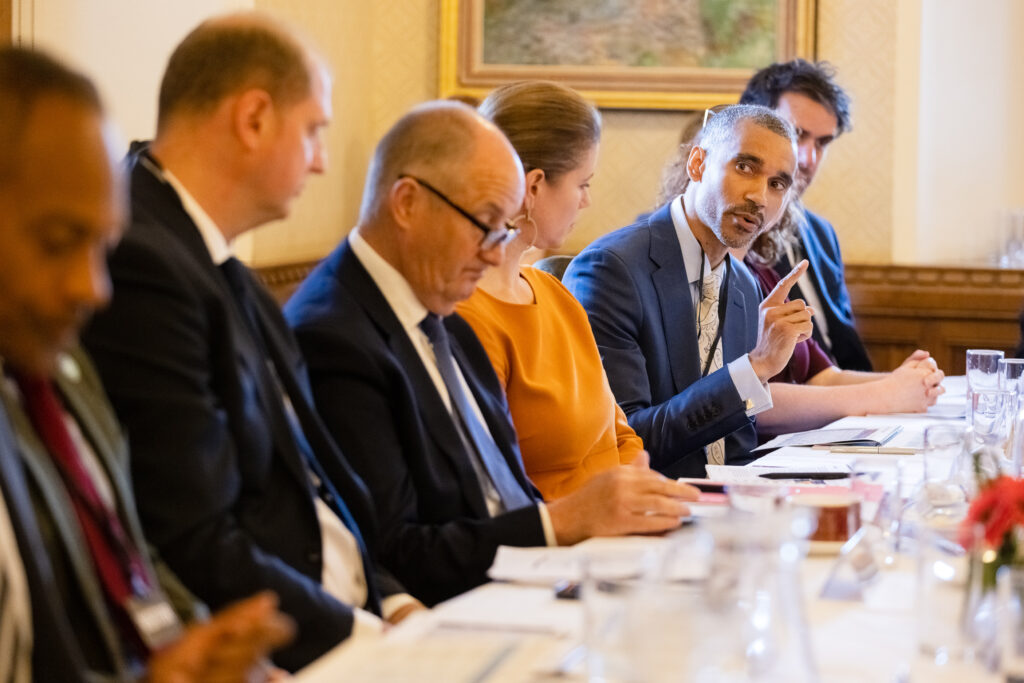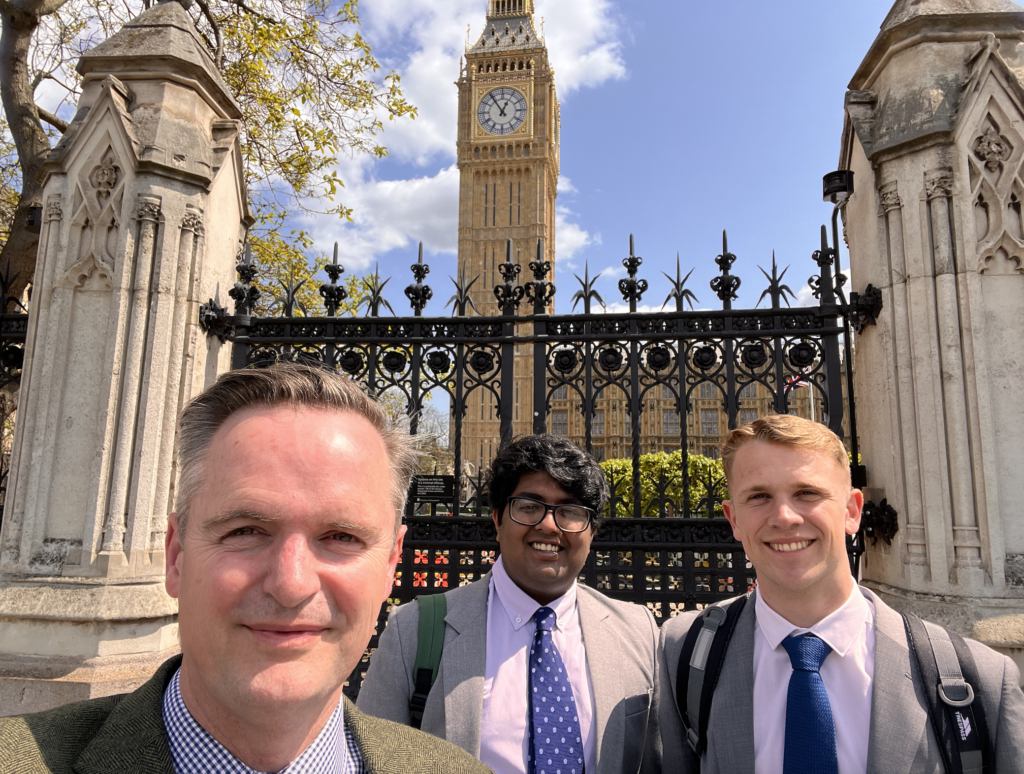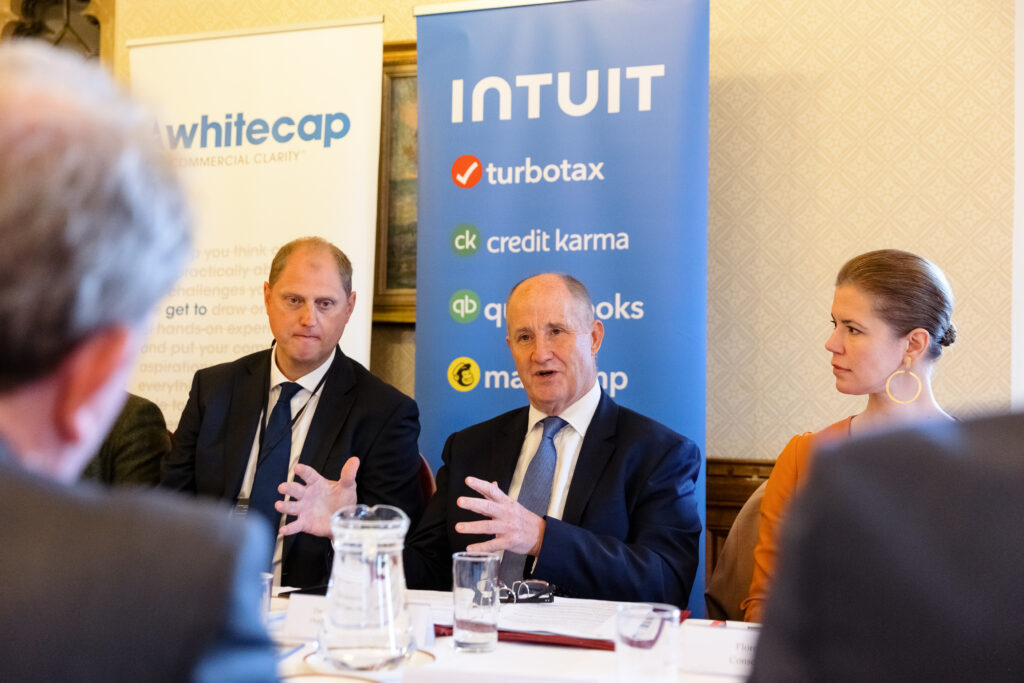 Whitecap, in partnership with Intuit, the global financial technology platform that makes Credit Karma, QuickBooks and Mailchimp in the UK, published the report in May following a research project spanning several months that involved consultations with industry experts and small business owners.
Whitecap, in partnership with Intuit, the global financial technology platform that makes Credit Karma, QuickBooks and Mailchimp in the UK, published the report in May following a research project spanning several months that involved consultations with industry experts and small business owners.
The launch event was held at the House of Lords where we were hosted by Lord McNicol, former General Secretary of the Labour Party, member of the FinTech APPG and member of the Shadow BEIS Team. At the event, we were joined by the Business Minister, Kevin Hollinrake, MP, who shared his insights on how the UK can embrace a Smart Data Economy and unlock the full potential of Open Finance for SMEs and consumers. Also in attendance were Adam Afriye MP, Chair of the APPG for FinTech, Seema Malhotra MP, Shadow Minister (Business, Energy and Industrial Strategy), Lord Cromwell, member of the APPG for Open Banking, representatives from Department for Business & Trade (DBT), the Conservative Party, and a number of guests representing the views of industry. The event, guestlist and venue were coordinated by Sovereign Strategy, whose Chairman Alan Donnelly was amongst the attendees.
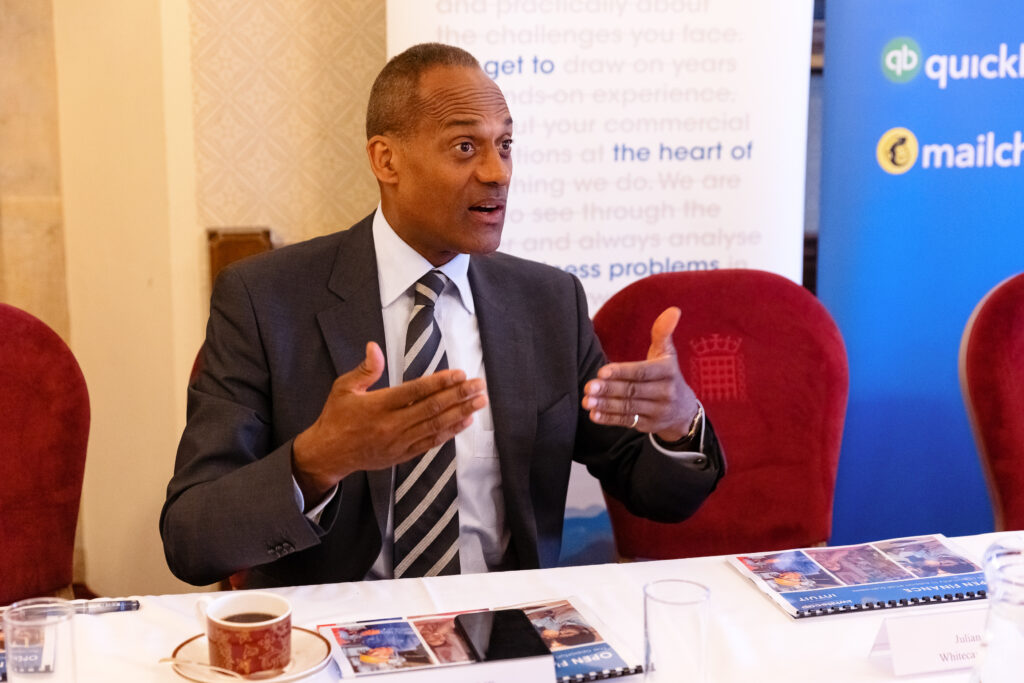
The discussion was chaired by Rob Burlison, Director of Global Corporate Affairs at Intuit, and the voice of the sector and small businesses was provided by a group of senior representatives from organisations including Open Banking, Innovate Finance, Centre for Finance, Innovation & Technology (CFIT), TechUK, Federation of Small Businesses (FSB), Coadec, and the Association of Chartered Accountants (ACCA), as well as FinTech innovators including Moneyhub, Answer Pay, and Credit Karma.
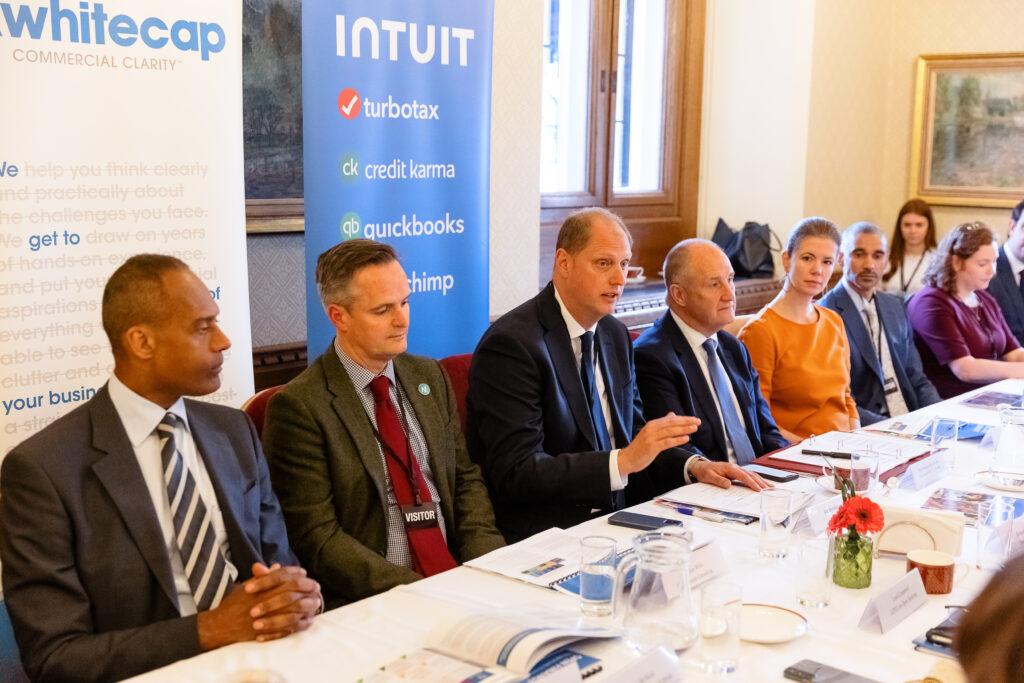
Julian Wells, Director and Financial Services & FinTech Lead at Whitecap, gave an overview of the report and findings, sharing the perspectives that were provided during the research from industry experts and from small business owners. The research highlighted some fundamental challenges within the financial services sector, such as the need to agree the scope of Open Finance and to define a regulatory regime. It also found that the although the understanding and awareness of Open Banking and Open Finance is low amongst small business owners, they have a strong appetite to have access to tools that can help them address key issues such as cashflow, late payments, and more efficient financial administration.
It was very encouraging to hear the agreement by both Seema Malhotra and Kevin Hollinrake that Open Finance has the potential to positively impact small businesses. It is clear that small businesses are a priority across both the main political parties, and also that Open Finance is acknowledged as an area of significant potential.
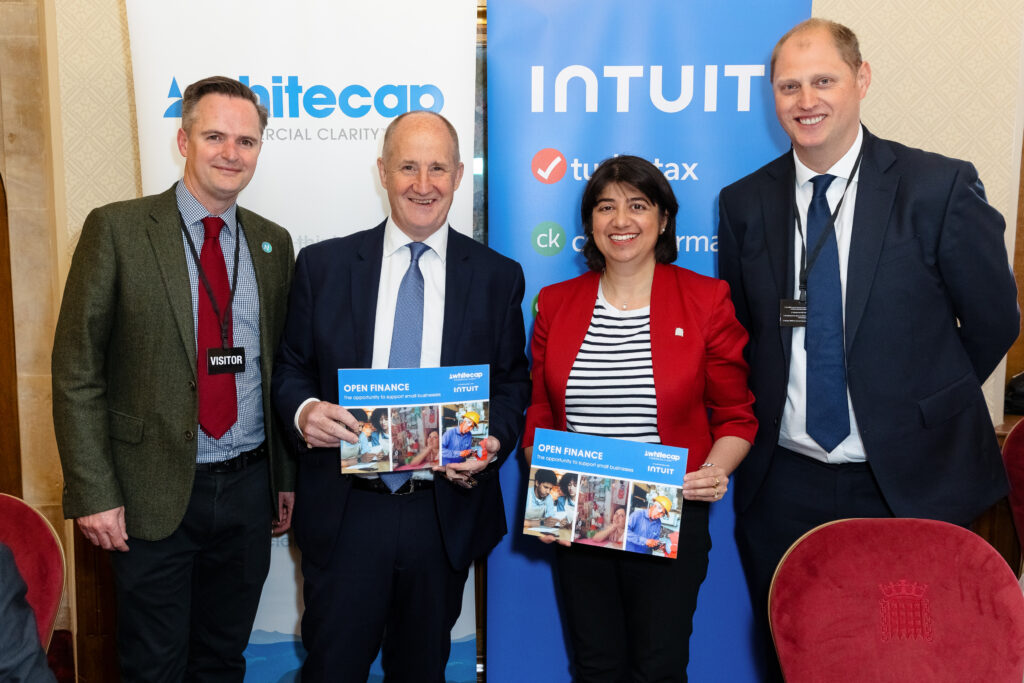
Small businesses account for 99.2% of businesses in the UK and are the backbone of the economy. As outlined in the report, Open Banking has had a positive impact in helping small businesses in areas such as automating financial business administration tasks and in the application for finance. Open Finance can enhance these areas much more and the report outlines potential use cases and impact across five key problem areas identified for small businesses: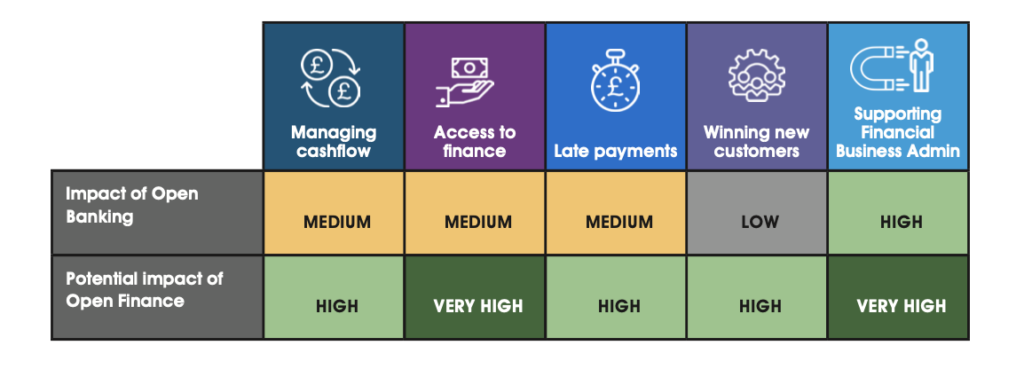
Access to funding was discussed at length at the event, although cashflow was highlighted as an issue that has knock on effects to other issues, for example late payments, difficulty obtaining finance, and inability to find and win new customers can all lead to cashflow problems. One example which was discussed at the launch event was the potential for Open Finance to allow for more accurate cashflow based lending products for small businesses. With more data at a lender’s disposal, they could better forecast a small business’ cashflow position enabling them to offer a more personalised financing product for companies vulnerable to factors such as late payments or seasonal demand.
Carl Reader is an entrepreneur, author and media commentator who has built multiple businesses across sectors including FinTech. Carl joined us at the event and shared his reflections afterwards:
“It was a fascinating debate, and reassuring to see the positive sentiment behind the concept across the board. I had a chat with some finance leaders today about this, and we keep coming back to the burning issue of interoperability between softwares. Provided that there can be agreement between FinTech vendors to find a way to transfer data freely, this could be a gamechanger – opening the market to smarter funding solutions, increased financial awareness, and the platform for whole of business analytics at a level that many small business owners could never have dreamed of. Layered with AI, an average small business really could end up with high level advice on tap, at any time.”
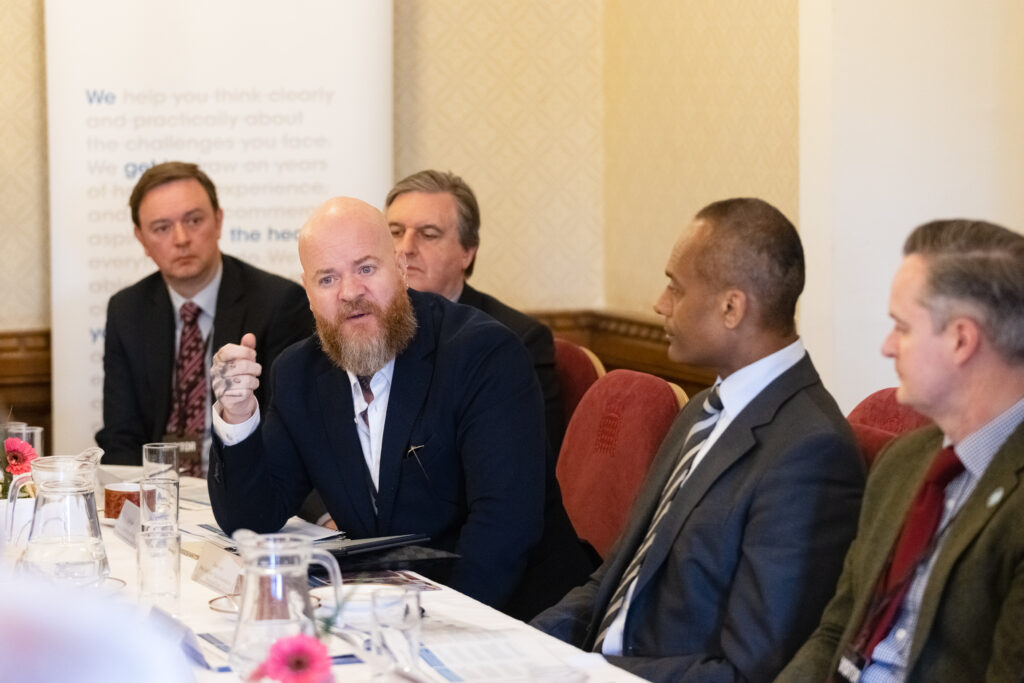
Carl also flagged where there may be obstacles to overcome:
“The challenge will be if several different standards, and differing levels of access, arise. Whilst you’d hope the market would sort itself out, there is of course the risk of a closed gate approach with just enough goodies behind the gate (or a few padlocks) to stop the end small business user benefiting from the potential.”
Read the launch announcement
Download the report
